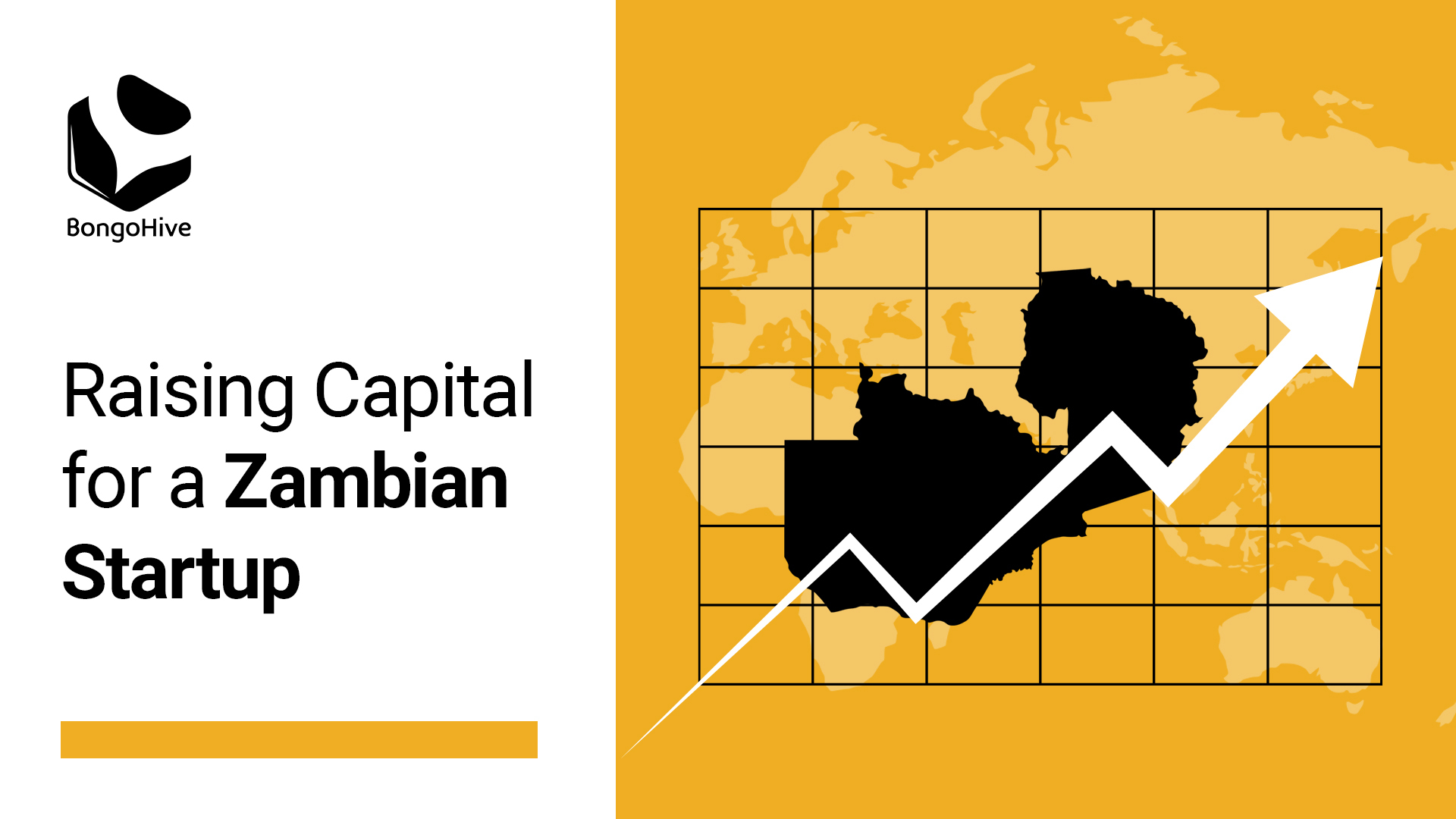
In a previous article, we looked at the statistics of (major) funding that Zambian startups received during 2020 and 2021. We also hosted a Twitter Space with the founders of some of the businesses that had received significant investment during that period – the space was not recorded but we have shared a summary of the conversation here.
In this article, we thought it might be useful to break down the different funding opportunities that Zambian startup founders can consider. There are various sources of funding available, depending on the type of business the startup is in, the type of industry, and the size of the business. Here are a few of the most common funding sources, aside from the founder’s initial cash injection, if any:
- Bootstrapping – this is when a business uses its own revenue and profits and reinvests it back into the business. We covered this topic in our podcast episode, Bootstrapping.
- Debt Funding/Small Business Loans – a business can secure funding at the idea stage in form of a loan from family and friends, a bank, or other financial institutions. The borrower is required to pay back the loan amount plus interest. Locally, banks such as AB Bank, Access Bank and Stanbic Bank provide SME business loans. Government-led funding for startups and SMES can be accessed from institutions such as the Development Bank of Zambia (DBZ), the Citizens Economic Empowerment Commission (CEEC), and the Youth Empowerment Fund to name a few.
- Grants – monetary grants are usually given by the Government or organisations, with no requirement to pay the money back. They are usually targeted at businesses working on specific solutions, or the startup may have to meet specific criteria e.g. the business must be women-founded or helping achieve a 2030 Sustainable Development Goal. Source: The Balance SMB. A local example of a Government grant is the National Technology Business Centre (NTBC) fund, the Technology Business Development Fund.
The Tony Elumelu Foundation is currently taking applications for African startups (applications close 31 March 2022!). - Funding rounds – startups can go through pre-seed or seed funding rounds, depending on what stage of business they are at. Pre-seed funding is typically for businesses that are still at idea-stage. Seed funding is typically for startups that have a product/service that is making traction and they are able to show proof of that to investors and is usually granted in exchange for equity in a business. Source: Brex.
- Angel Investors – these are usually individuals that are looking to back a startup/company in exchange for equity or ownership. These investors provide capital, connections to their networks, and capacity building through mentorship. A perfect example of how this works is the tv show ‘Dragons Den’ (although it typically wouldn’t be in that format, the investors are usually working as angel investors). Angels can also invest as a group and this would take place through an angel network like the Zambia Business Angels Network.
- Venture Capitalists (VCs) – VCs usually invest capital into small businesses in exchange for equity. VCs are usually businesses that are members of a larger capital investment firm and an investment committee will usually decide on who they will invest in. Local examples of VCs are Kukula Capital, Zenga Venture Fund, and 30Thirty Capital.
- Crowdfunding and Equity Crowdfunding – Crowdfunding involves raising funds through crowdfunding events or platforms for people who are looking for or are willing to put money in a startup. Equity Crowdfunding is similar to the aforementioned, but the startup would be giving away shares/equity to the business in exchange for capital from “strangers”. An example of this is the equity crowdfunding platform Seedrs, where businesses registered within the EU, EEA, or Switzerland can apply to raise.
- Incubators – incubators or accelerator hubs are also a funding opportunity for startups, especially those that are backed by organisations that are looking to build and invest in local startups. Source: Brex. At BongoHive, we offer startups and entrepreneurs support for all the above forms of funding – whether it’s a startup trying to figure out how to grow by bootstrapping, or would like assistance preparing themselves for venture funding opportunities. More established incubators such as CCHub and YCombinator do invest in some of the startups that have been in their accelerator programmes. BongoHive is in the process of building a fund of its own, BongoHive Ventures, that will allow us to invest in startups in the future.
As listed above, there are many funding sources that a startup can explore. But, why is it that startups are still not able to access them? One challenge that might exist is that there are many startups seeking funding and perhaps, not enough money for them all, at the same time. Another, as shared by our Entrepreneurship Lead, Peter Nawa, is that startups are often seeking the wrong type of funding for the stage of business that they are at. “An early-stage startup should look more to grants, competitions, and angel investors rather than venture capital as a source of funding”.
We recently hosted a “Ask Me Anything” chat with Perseus Mlambo of Union54, the first Zambian startup to be accepted into YCombinator. We – watch the video to learn about their application process and provide some insight into what founders should work on to access funding, from Perseus’ perspective.
We hope this article has provided some useful information about the startup funding process and levels.
Sources:
Disrupt Africa
Brex.
Brex.
 BongoHive
BongoHive